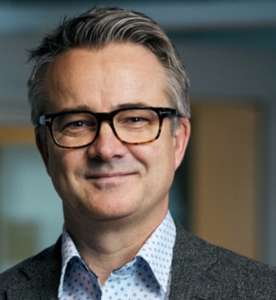More emphasis on research at upcoming Annual Congress
EAU24 to feature new Research Forum to highlight basic and translational research
The EAU’s Scientific Congress Office (SCO) is currently designing the scientific programme for the upcoming 39th Annual EAU Congress, to be held in Paris on 5-8 April, 2024. The SCO has the ambition to offer a bigger stage for basic and translational research at the congress, and starting in 2024 it will be expanding the time allocated to research and involving the EAU Section for Urological Research (ESUR) in abstract selection.

We spoke to Prof. Lars Dyrskjøt (Aarhus, DK), a member of the SCO and closely involved in this new initiative to increase the presence of urology research at the Annual Congress. Prof. Dyrskjøt is a Professor and group leader at the Department of Molecular Medicine at Aarhus University and joined the EAU’s SCO in 2020. He explains the SCO’s considerations:
“Considerable high-impact basic and translational research is being carried out in the field of urology at the moment, and I think it is timely to a have a larger focus and awareness of this at the annual congress.”
Regarding the timing, Prof. Dyrskjøt thinks that certain breakthroughs, specifically in oncology, have started to give urologists a more comprehensive understanding of urological diseases. “This is an opportunity to start guiding treatment in a better way, based on molecular mechanisms and alterations. Large research efforts are also focused on identifying who will respond to checkpoint inhibitors, tyrosine kinase inhibitors and combinations in RCC.” “In addition, more clinical trials are associated with exploratory biomarker studies, and importantly, some trials are starting to base decisions directly on molecular biomarkers. We see examples of this in the field of bladder cancer research in the GUSTO trial where patients are guided to different neoadjuvant oncological treatments based on molecular subtypes. Also, clinical trials are ongoing on the field of ctDNA research like TOMBOLA and Imvigor011, where treatment decisions are based on circulating tumour DNA (ctDNA) detection.”
There are currently many topics and subfields in urology where basic and translational research are proving to be crucial for further development. Some may even become more important in the near future, according to Prof. Dyrskjøt.
“Speaking very broadly, I think that especially ctDNA as a biomarker for detection of measurable residual disease and disease surveillance, and for monitoring response to treatment is very promising and important, and may be a key factor in the future for guiding treatment decisions. However, additional research is needed in the field, and as mentioned above, substantial research is currently carried out in the field of ctDNA, but also in the field of other blood-based biomarkers (circulating tumour cells (CTCs) and extracellular vesicles) that inform us on metastasis biology.”

Research at EAU24
Like the other Sections, ESUR has its own session at the Annual Congress, typically combined with the EAU Section for Uropathology (ESUP). In 2024, the presence of urological research in the EAU24 Scientific Programme will be further enhanced with the creation of two new research-focused abstract sessions.
“It’s important that these topics are presented and discussed in a way that is relevant for the majority of delegates and their daily practice.” These sessions will showcase notable submitted abstracts, as selected by the Scientific Congress Office with the cooperation of ESUR. The new abstract sessions, together with the ESUR-ESUP session will form a “Research Forum” as part of the EAU24 Scientific Programme.
Prof. Dyrskjøt: “The enlarged role of the EAU’s research sections in the form of expanded abstract presentations of innovative work will help to bring additional awareness to the novel research presented at our Annual Congress. This is because these new sessions will feature longer presentations, and because the work will be discussed by experts in the field. Furthermore, involving ESUR more in the selection of research to be presented at the meeting in extended format will also ensure a broader view of what is considered novel and innovative.”
In general, the Scientific Congress Office wants to strike a balance with the Annual Congress, offering the most cutting-edge science while also offering very practical, clinically relevant information for its delegates. How does Prof. Dyrskjøt look at these considerations?
“When attending other large meetings, I definitely see a movement towards presenting more ‘cutting-edge hard science’, probably because of the reasons mentioned above. I think the EAU’s Annual Congress delegates are certainly also interested in learning about these developments, but of course it’s important that these topics are presented and discussed in a way that is relevant for the majority of delegates and their daily practice.” The Scientific Congress Office hopes that EAU24 marks the start of increased presence of urological research at the Annual Congress, which will further increase from EAU25.

